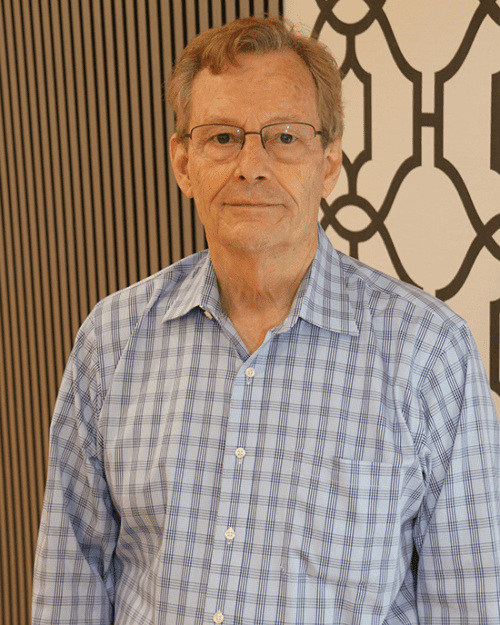Lionhearted Leaders: Robert Kramer

PNW’s Lionhearted Leaders are faculty recognized for their exceptional work inside and outside the classroom.
Meet Robert Kramer, professor of Physics and a Lionhearted Leader in the College of Engineering and Sciences.
What changes have your brought to your discipline?
To a large degree during my career I have been involved in activities related to the production and distribution of energy in addition to teaching various Physics and Engineering courses. I have been responsible for the engineering, design, and operation of large bulk electric systems and have participated in various activities that have helped to assure the reliability, quality, and availability of energy locally as well as nationally.
I am directly involved in the design and development of Combined Heat and Power systems that provide alternatives for local generation and high efficiency energy supply. I have worked with various energy industry groups and organizations to research and develop designs, standards, and operating procedures to enhance electric system reliability including transient response. I work with twelve cities and the Indiana Department of Transportation to research and evaluate high efficiency lighting alternatives both in the laboratory and in the field.
I actively participate in energy efficiency and optimization research, development, and audit and design efforts for industrial, commercial, and local entities. I am currently developing optimized energy system designs that utilize conventional and renewable energy sources including production of hydrogen from waste food sources using a biological process patented by the Purdue Research Foundation.
I have been awarded seven patents and have one current patent application in process as a result of my energy research efforts. I have been awarded over a total of 35 grants to support these efforts. I have developed a method, referred to a Value Based Benchmarking, to help optimize the acquisition of knowledge and skills and thereby increase the tangible value that students obtain from coursework.
How much of an impact will your current research of turning food waste into hydrogen as fuel have on Americans?
Current efforts to commercialize a process for production of hydrogen from food waste, that our research team discovered and developed, will assist in providing a path to increasing the use of hydrogen as an environmentally friendly and efficient energy carrier. This new process uses food waste to biologically produce hydrogen that can be used as a sustainable energy source for production of electricity or heat as well as for chemical and industrial processes or as a transportation fuel. This process uses what would otherwise be wasted food to produce hydrogen biologically.
Hydrogen is light, storable, transportable, energy-dense, and produces no direct emissions of pollutants or greenhouse gases. More than 30% of all food, amounting to $48 billion, is wasted in the United States each year. That waste could be used in the developed process to create hydrogen, a sustainable energy source that does not cause environmental issues.
What do you like to do outside of work?
I enjoy running, swimming, and scuba diving as leisure activities.